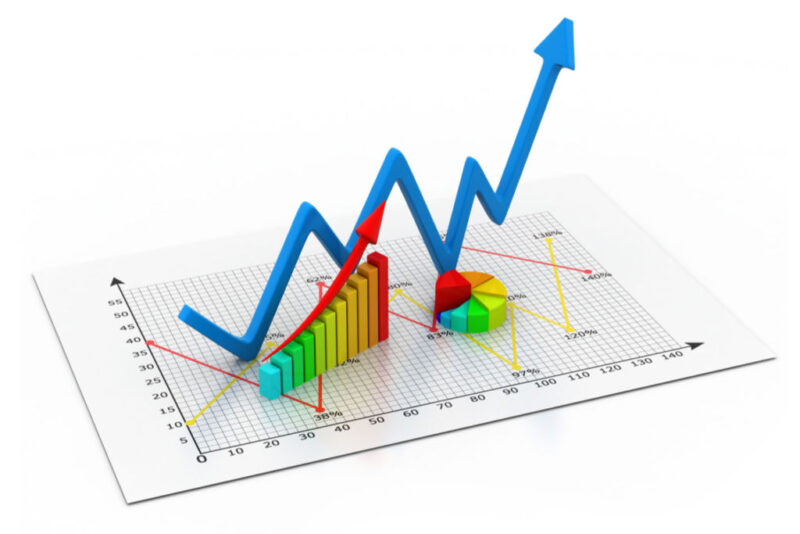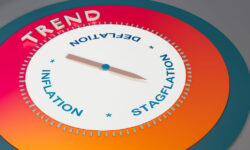Yesterday, I asked you simple question: is it possible to bring down double-digit inflation with 3% interest rates?
It would have sounded like an absurd question not so long ago. Surely you need to raise interest rates to be above the rate of inflation at the very least? Otherwise, you’re still stimulating the economy in real terms, after all.
At our Bank of England forecast of 11% inflation and the market’s expected 3% interest rates from the Bank of England, the interest rate adjusted for inflation – the one that matters – is still -8%. Borrowers are still being paid 8% to borrow at that point, in other words.
Because of this, historical central bankers would probably be horrified at the very question being asked. The idea that interest rates are lagging behind inflation by double digits in parts of the euro area is downright terrifying. Don’t modern central bankers know where such policy leads?
If you ask me, we should be hiring historians, not economists, to run central banks. Economists focus on recent economic data, which is why they’re often accused of driving a bus by looking out the rear window… with the predictable results in 2008 and 2022.
When there was a turning point, they completely missed it and drove off the edge of a cliff in 2008 and into a wall of inflation in 2022. “Nobody saw it coming,” they tell the parents of the kids who were screaming all the way.
Historians have longer memories than economists. (I tried to do a PhD in economic history but was rejected for the lack of maths.) Historians might be able to remember what wild monetary policy risks causing. Perhaps they should be central European historians in particular…
But back to our question. Central banks around the world face double-digit inflation. And they’re allegedly planning to hike interest rates to about 3% to bring that inflation back down…
[I don’t know whether to laugh or cry each time I re-read that sentence during the editing process.]
But is that even possible?
The markets seem to think it is. They’re expecting interest rates to hit around 3% for the UK and United States, for example, and inflation to come right back down to very low levels within a few years.
In fact, they’re already pricing in rate cuts next year in some places, including the United States!
This implies inflation is coming back down again in 2023. In fact, it implies inflation will fall so far so fast that the US central bank will have to cut rates…
From double-digit inflation to needing to cut interest rates to stimulate the economy in 2023 would be a truly amazing round trip!
In my view, such a rapid drop in inflation can only happen in two very different ways. One is a recession and the other is a financial crisis. Both would be triggered by higher interest rates. And neither would be good for stocks.
So, presuming the market expectations are right, the real questions is, which is more likely? 3% interest rates bringing down double-digit inflation with a recession, or… a financial crisis?
I’d have to say a financial crisis is my own bet.
In my view, those investors who have been relying on the central bank to change its mind about tightening monetary policy based solely on a recession, well, the investors are the ones who will have to change their mind. The United States has been in recession for six months now and the politicians and central bankers have simply changed the widely accepted definition of “recession” in order to avoid declaring one.
The Ministry of Truth is hard to get rid of after a pandemic…
So, it seems the Federal Reserve is keen to nip inflation in the bud at the expense of a recession. But what about a financial crisis? Would that change its mind?
Well, over the pond we have the most likely contender for such a crisis. The European Central Bank, risks being left behind when it comes to tightening monetary policy. While the Telegraph declares “Fed piles pressure on Bank of England with drastic new rate rise”, it’s the lack of interest rate hikes at the ECB which are concerning.
The euro area’s policy rate is still 0% while inflation is roaring, and that’s after a huge rate hike! Of course, inflation is roaring at wildly different rates across the euro area. But whichever inflation rate cherry you pick, 0% isn’t going to a reasonable interest rate.
Funnily enough, it isn’t inflation that everyone is worried about for the euro area. It’s the consequences of tightening monetary policy… from 0%.
As Bloomberg’s editors put it, “The ECB’s Moves Make Sense, But Won’t Be Enough”. Enough for what?
Well, conditions in the euro area are diverging badly. And so, setting one monetary policy to rule them all is tricky.
But what makes the euro area so dangerous is that, unlike in other places, there are restrictions on using the printing press to bail out the government. It’d be unfair for the Germans’ currency to be trashed in order to save Italy’s prospective right wing eurosceptic government, for example…
And so, if tighter monetary policy triggers some sort of sovereign debt crisis, things could get ugly again.
But what if I’m wrong? No doubt central bankers have other ideas and expect neither a financial crisis nor a recession.
After the recent interest rate hike of 0.75% in the United States, the Federal Reserve declared that the new interest rate is in fact neutral.
This means that the Federal Reserve is neither stimulating nor slowing the economy anymore, but in the “Goldilocks zone” where everything is neither too hot nor too cold, but just right.
While it’s good to see the central bank admit that it has been busily stimulating an economy with incredibly low unemployment and incredibly high inflation for a long period of time now, the claim of “neutral” still seems a bit spurious to me.
I mean, inflation is close to double digits. And 2.5% interest rates are neutral?!
And yet, stocks rallied based on this delusional declaration from the US’ central bankers. Why? It suggests the Fed is having second thoughts about just how tight monetary policy will have to get to bring down inflation. It might chicken out on some of the rate hikes which had been anticipated.
Perhaps they know we’re in for a recession and a financial crisis after all.
The thing is this: a pivot back to loose monetary policy too soon risks stoking inflation all over again.
You can see the pickle they’re in.

Nick Hubble
Editor, Fortune & Freedom




